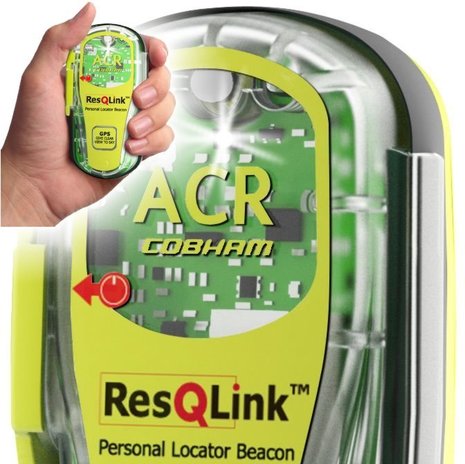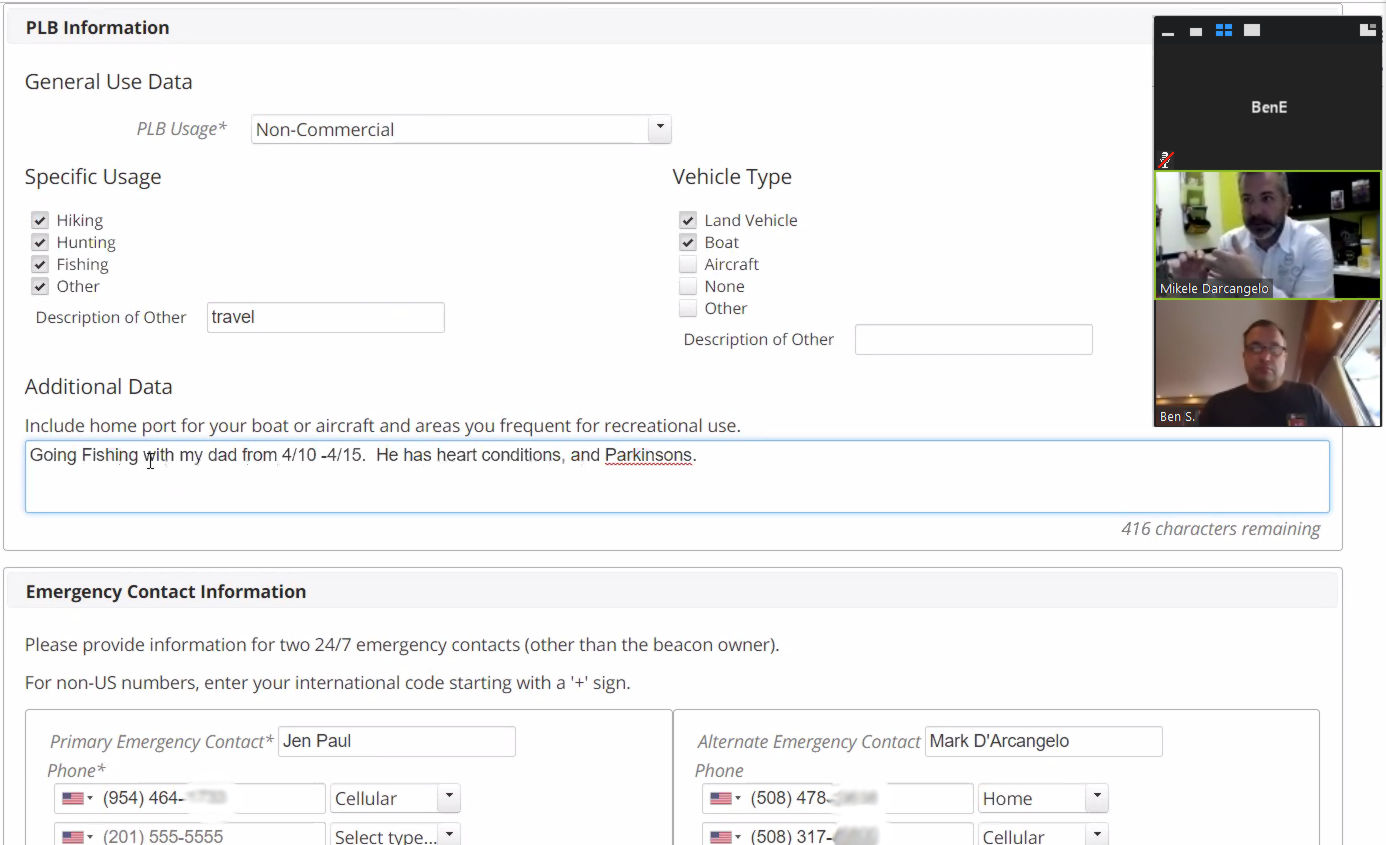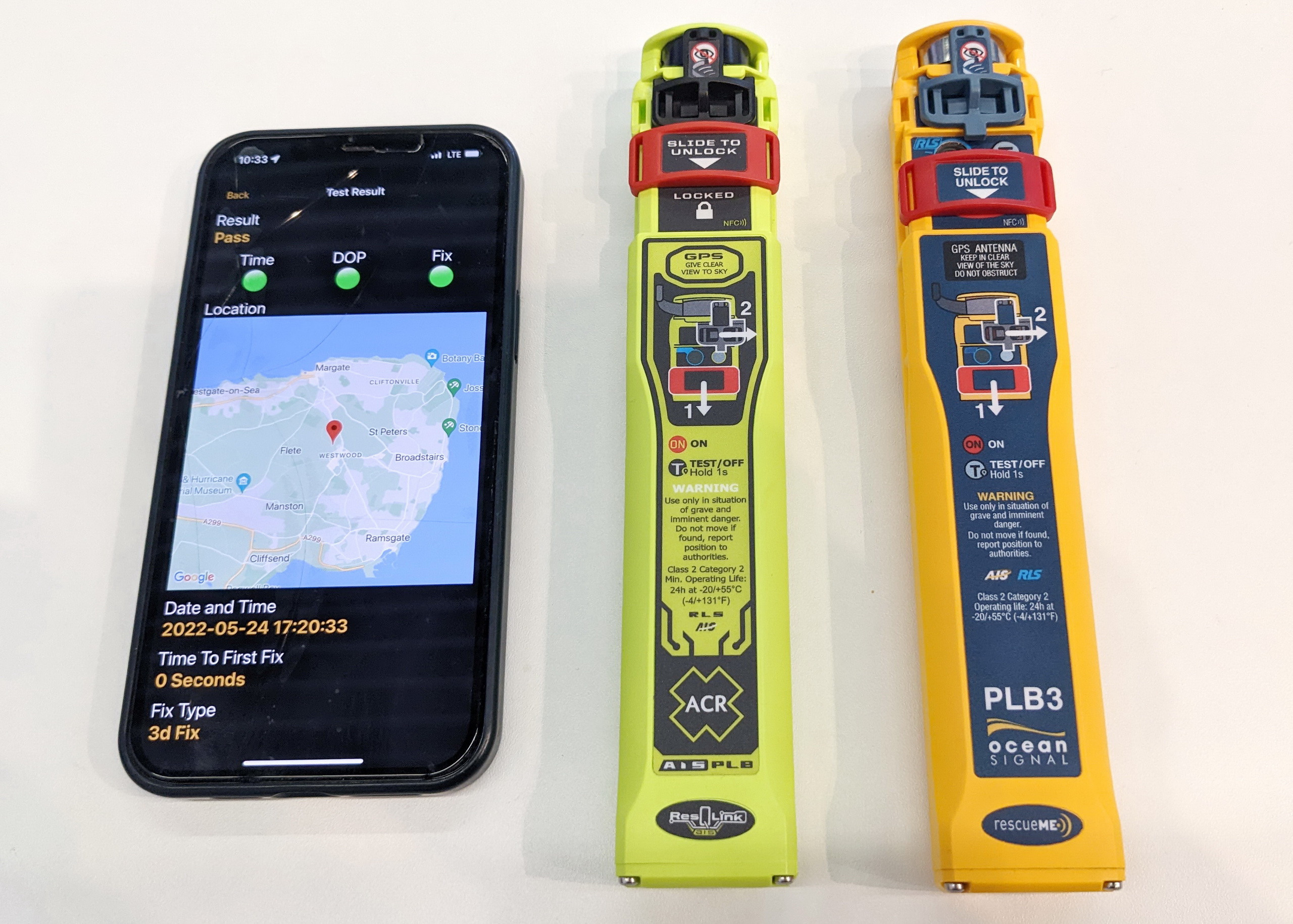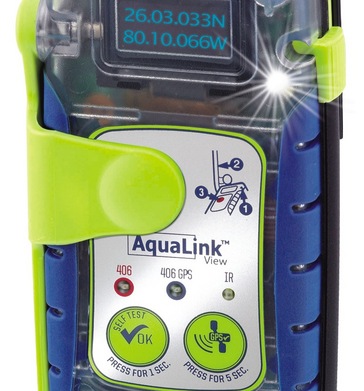ACR: new PLB & Iridium partnership(s)
I think ACR has really advanced PLB technology in recent years, what with its AquaLink View and 406Link testing/messaging service. But up until now it didn’t have a competitive response to McMurdo’s extra small and extra inexpensive Fast Find 210. Well, hello ResQLink, which now lays claim to “world’s smallest PLB” along with a few features that may demand a response from McMurdo. ResQLink has an antenna that the user can repack, for instance, which is one reason why it can do a full through-satellite test (with GPS) using the 406Link service. Doug Ritter put up an early and thorough ResQLink/Fast Find comparison here — and note that the FCC disclaimer still applies, probably until late February — but do come back to hear about what ACR is up to with Iridium…
Today Iridium announced five new partners and at the top of the list you’ll see ACR, which is purportedly “extending its range of renowned emergency distress alerting beacons to include true global two-way text messaging and tracking capabilities.” While ACR tells me that the “innovative TXT-100 device” mentioned in the release is many months away (and that’s only a working name by the way), just knowing that a marine electronics player of its stature is working with Iridium’s new SBD 9602 messaging abilities reinforces my sense of what a big deal it may be for boaters. And look, DeLorme is a new Iridium partner too, which certainly suggests that there will be a two-way, and global, version of its Spot PN-60w system. Plus we’ve already had a preview of Briartek’s powerful 9602-based Cerebrus system, and who knows what Iridium’s other 149 partners are working on. Or how the other commercial satellite companies will respond to a deluge of messaging, tracking, and distress gadgets.
And what about the non-commercial COSPAS SARSAT system that’s behind the amazing abilities of PLB’s like ResQLink? While ACR’s initial Iridium product isn’t about distress per se, my source there definitely sees the value of two-way messaging during a bad situation at sea, as I’m sure the SAR professionals do. He also said that there several possible advancements coming to SARSAT technology, like AIS EPIRBS. As discussed in that Cerebrus entry, it seems to me that the pros and cons of commercial versus non-commercial safety technologies may soon be pretty confusing…but then again that might be because they’re both so good.
















Two-way text to an emergency beacon? I like the sound of that. When things get really bad really quickly, being able to get messages to and from the boat in distress could be very helpful to the SAR teams. They would have a way to know, for example, whether they need to bring extra supplies to deal with a medical condition, or whether damage or injuries might preclude the use of some extraction techniques. It’d also be great for morale and safety aboard the stricken vessel, knowing what SAR assets are on the way and what to do when they arrive would.
The clincher, as always, will be price. If this adds a significant recurring fee, ships might not mind but cruising boats might choose to do without the extra features. If they can roll it all into a one-time purchase price that’s not a prohibitive jump up from GPS EPIRBs, it’ll likely become the de facto standard across most long-range fleets.
I’ve had occasion to use Iridium phones and the texting is really the part that gets used as the pricing is low and transparent in most plans vs calling Iridium phones. Curious what the input approach will be. Liked the bluetooth concept as an option, but keying the text in is probably going to be an area with some different solutions.
I agree, Matt. There are also plenty of distress situations that start slowly and it would be good for all if a boater could notify the authorities that there was a possibility help would be needed, knowing that it was the beginning of a conversation.
But let me be clear that I don’t know of any two-way device in development that’s really like an EPIRB or PLB beacon, because the COSPAS SARSAT system doesn’t have two-way abilities. What’s happening is that Iridium is making it possible to develop two-way texting/tracking devices with a high level of reliability and global coverage that could be used to communicate with the international SAR organization via a commercial service.
Globalstar provided this sort of commercial distress service first, but the reliability, coverage, and build quality of SPOT made it no comparison to a PLB (though it’s affordable and quite useful in other ways). But given Iridium’s technology, and its partnership strategy, it seems quite possible that we’ll see commercial distress communications devices that are quite competitive with COSPAS SARSAT, even better because they’re two-way.
My big concern continues to be battery life.
Texting services via iridium will have to use the PLB’s battery, and unless they allow a separate battery for texting, will be a very expensive message system.
If you are content to NEVER use it, except in a real emergency when you would activate the PLB, then fine. But draining a PLB battery on notes home to the wife is going to get expensive. PLB/EPIRB batteries don’t come cheap.
I’m worried that I’ve somehow confused readers. Greg, please read my note to Matt if you haven’t already. In other words, neither ACR nor any other company I know is working on a PLB that can also doing messaging via Iridium. PLBs and EPIRBs work with the COSPAS SARSAT system and are built to strict regulations. I don’t know what ACR is developing, but it might look like the Cerberus:
https://panbo.com/archives/2011/01/and_hello_cerberus_spot_connect_on_steroids.html
Ben,
A Global suggestion for all posts and user comments.
Could you all kindly explain the 3 letter acronyms you use aside from the really well known ones such as GPS.
Do it once and then readers are no guessing.
Excuse my density… it comes with old age.
Understood, SanderO…I temporarily forgot my Bonnier boss’s last name for a while this morning! I did think about writing out Personal Locator Beacon when I wrote this entry, but thought having it spelled out in the picture was sufficient. SBD is for short-burst data, which is written out in the entry linked to. I also meant put in a link to COSPAS SARSAT, though even the organization seems reluctant to explain its acronymialogy 😉
http://www.cospas-sarsat.org/index.php
If anyone knows of, or is willing to create, a glossary of acronyms used in marine electronics, I think I could find some place to post it on Panbo.
Ben,
That would be a super idea… a Panbo glossary!
Is this for sale real soon? I was interested in purchasing for my upcoming cruise.